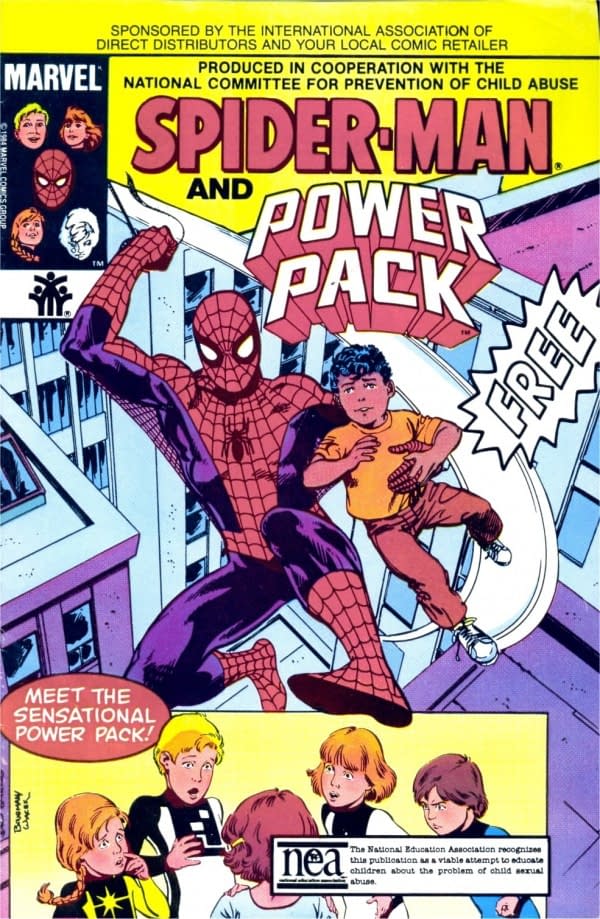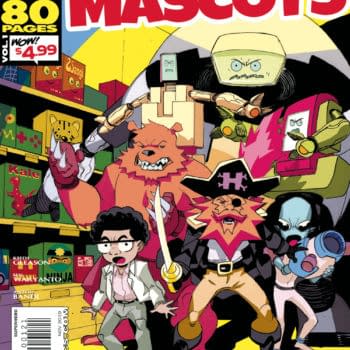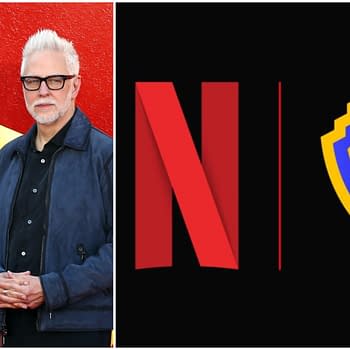Posted in: Comics | Tagged: Jim Salicrup, power pack, spider-man
Jim Salicrup, On When Spider-Man Fought Pedophiles
Watching the coverage of the latest NCAA pedophilia scandal, this time at Syracuse, while working on some Spider-Man back issue prices had me thinking about the time that Spider-Man took on the issue of child abuse. That comic was Spider-Man and Power Pack, with Jim Salicrup and Jim Mooney handling Spider-Man and Louise Simonson and June Brigman, the creators of Power Pack, on the Power kids.
Rather than rattle off what the comic is and how it came to be, I thought I'd ask Jim Salicrup to discuss it.
With Marvel acting in cooperation with the NEA and the National Committee For Prevention of Child Abuse, were you given leeway to come up with the story, or was the story pretty much by committee?

Considering the topic covered, was it personally difficult for you at all to write?
Yes and no. I believe strongly in comics being an excellent way to communicate, and this was an important message for children. I tried to be as true to the spirit of the Spider-Man mythos, and to have it all be as honest as possible, while still being very clear to young children. I had written Spidey Super Stories for years, but thought this needed to be a bit more sophisticated, more like the regular Spider-Man titles published at the time. So, it was a challenge, but I hope I communicated the points they wanted to get across well.
Having been a kid when that came out, I know that it was just about everywhere, and made its way into the hands of scores of kids. Have you ever heard back from any kids that personally felt helped by this comic?
Great question! But no, I haven't. I had been sent copies of newspaper articles reporting on arrests and such that were made as a direct result of children reporting abuse after reading the comic.
I know that this was the first comic book that I ever read Spider-Man in (sorry if I'm making you feel old). I'm curious if there were any concerns about associating Spider-Man with a topic like this, as I'm sure that I can't have been the only person whose first Spider-Man comic was this one – was there any worry that associating Spider-Man specifically with this topic could be damaging to the brand?
Well, at least it seems as if that comic didn't scare you away from Spider-Man!
Marvel chose to be associated with the subject, in a positive way. Aware of the vast amount of younger fans they had at that time, the opportunity to do something to help prevent child abuse seemed like a smart and responsible thing to do. And Spider-Man has always had a lot to do with responsibility.
Marvel had done many similar comics related to social issues. Probably the first were the famous "drug issues" in The Amazing Spider-Man. Stan Lee defied the Comics Code Authority, which at the time prohibited any references to drugs, to show the ill effects of drugs on Harry Osborn, and published the issues without the Code's Seal of Approval. The Code was later changed to allow such depictions, and eventually Marvel abandoned the Code altogether.
Marvel's main goal has been to entertain. At their best, Marvel has respected its audience's intelligence, and tried to present social issues, when it made sense, into their stories. Entire series such as Cloak and Dagger and The Runaways certainly reflect that, just as X-Men has always dealt with themes clearly related to prejudice. Marvel has tried to keep their characters grounded in the real world, and has included such real life events such as 9/11– even when that raises questions that undercuts the believability of their stories.
After this you would go on to later be the line editor for Spider-Man. Was there ever any consideration on your part to use the child abuse aspect of Peter's past in a mainstream, in-continuity story?
Whether or not the child abuse prevention Spider-Man story is part of Marvel's official continuity is a moot point to me. What matters is that the comic was published by Marvel in the first place. Even if they might be embarrassed by it now and consider it cheesy by the their current standards, that's okay too. The comic was produced with the very best of intentions, and I hope it did some good.
Lastly, we really don't see comics like this anymore, whereas in the 80s, there was this, the Titans doing anti-drug PSAs, and numerous other educational materials put out. Is there still a place for these today?
Just like Marvel, at Papercutz, where I'm the Editor-in-Chief, our primary goal is to entertain our audience, but if we can include responsible messages, without being too heavy-handed, we will do that as well. Sometimes we've been overt — we featured Sarah Palin on a cover of Tales from the Crypt and we've published Peter Kuper's adaptation of Upton Sinclair's "The Jungle" in Classics Illustrated. Political satire even appears in the pages of The Smurfs, especially in "King Smurf." But almost all our titles have far subtler "messages." Again, the point being that we respect the intelligence of our audience.
As for such books being published today, one of the graphic novels I'm eagerly looking forward to is Health Care Reform: What It Is, Why It's Necessary, How It Works by Jonathan Gruber, with H.P. Newquist, and illustrated by Nathan Schreiber. Unlike the other comics we've discussed, this comic is for adults, and will clear up the countless misconceptions people have on this incredibly important subject.
Oh, and don't worry about making me feel old. Even when I was a youngster and my mother would take me to the playground, she said I was like a little old man — I'd just sit there on the bench! Turns out it was perfect training for my current job, where I'm seated at my desk, in front of my computer for countless hours.













